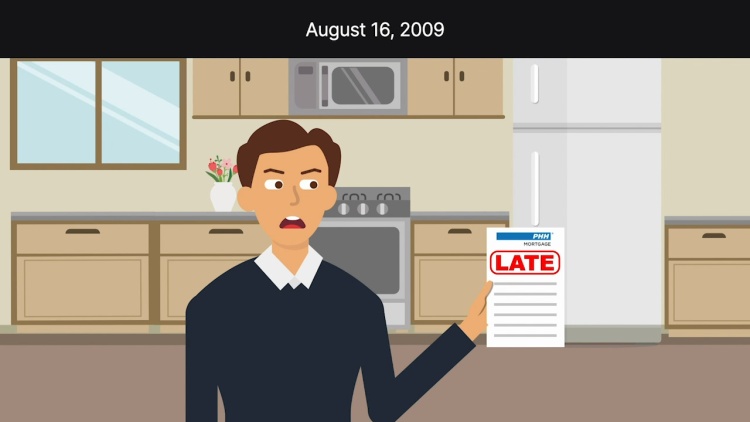PHH Mortgage Corp. v. Ramsey
Ohio Court of Appeals
17 N.E.3d 629 (2014)

- Written by Sean Carroll, JD
Facts
Andrew Ramsey (defendant) purchased real property subject to a mortgage held by PHH Mortgage Corporation (PHH) (plaintiff). Ramsey made mortgage payments online through PHH’s website for six years. PHH permitted and, in fact, encouraged its mortgagors to make payments online. Ramsey occasionally received error messages when he attempted to make his payments online. When this occurred, Ramsey would simply try again at a later date, and the payment would process on a subsequent attempt. PHH never rejected a payment Ramsey made this way. In August 2009, Ramsey tried to make his monthly payment online and received the error message he would occasionally see. This time, however, the payment did not process after multiple subsequent attempts. Ramsey called a PHH help line to describe the issue and was told that the payment would be processed. However, the payment was never processed. The September 2009 payment also went unprocessed, despite Ramsey attempting to make the payments both online and in person at a PHH office. Ramsey had also mailed to PHH a check for the late August payment with a letter explaining the situation. This attempted payment was never cashed or returned. PHH filed a complaint foreclosing on the property. PHH argued that although it allowed electronic payments, this payment method was not a mortgagor’s right. The Franklin County Court of Common Pleas held in favor of Ramsey, finding that Ramsey did not default on his mortgage, because PHH had accepted Ramsey’s electronic payments for six years, and thus, had waived any claim that payment could not be made electronically. PHH appealed.
Rule of Law
Issue
Holding and Reasoning (Brown, J.)
What to do next…
Here's why 911,000 law students have relied on our case briefs:
- Written by law professors and practitioners, not other law students. 47,100 briefs, keyed to 997 casebooks. Top-notch customer support.
- The right amount of information, includes the facts, issues, rule of law, holding and reasoning, and any concurrences and dissents.
- Access in your classes, works on your mobile and tablet. Massive library of related video lessons and high quality multiple-choice questions.
- Easy to use, uniform format for every case brief. Written in plain English, not in legalese. Our briefs summarize and simplify; they don’t just repeat the court’s language.





